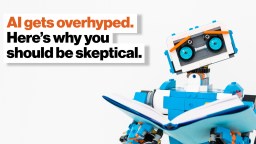statistics
Dunbar’s number is a popular estimate for the maximum size of social groups. But new research suggests that it’s a fictitious number based on flimsy data and bad theory.
People often divide the world into “us” and “them” then forget about everybody else.
Could we have predicted COVID-19 through social media trends?
Would you ever have sex with a robot?
Study finds quantum entanglement could, in principle, give a slight advantage in the game of blackjack.
New research shows how Americans feel about genetic engineering, human enhancement and automation.
Christmas Day is the least popular birthday in several countries.
These questions can help us think more critically about new developments in artificial intelligence.
▸
7 min
—
with
Correlation doesn’t equal causation — we all know this. Well, except robots.
▸
7 min
—
with
A new study challenges international life expectancies.
It’s far earlier than most teams currently do.
Why are soda and ice cream each linked to violence? This article delivers the final word on what people mean by “correlation does not imply causation.”
▸
with
The controversy around the Torah codes gets a new life.
We can “read” genes with ease now, but still can’t say what most of them “mean.” To show why we need clearer “causology” and fitter metaphors, let’s scrutinize cars and their parts like we do bodies and genes.
Is “science broken” or self-correcting? And who is going to do the grown-up thing and fix the game (instead of scoring points within it)?
A new study looks at how to make a successful smile.
A pioneering study provides a detailed look at how the U.S. economy will suffer from climate change.
If you want to know the state of equality in the US, statistics are a good place to start.
▸
5 min
—
with
A new risk analysis shows how the danger of terrorist attacks compares to other causes of American deaths.
Hans Rosling was a physician and statistics superstar who advised world leaders and tech tycoons.
A fascinating international study takes a look at what the average person does in a lifetime, broken down by days and percentages.




















